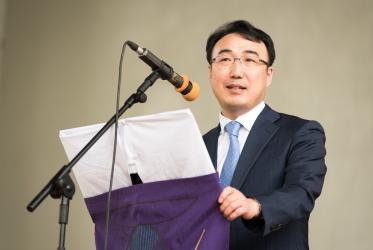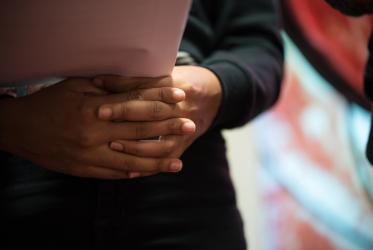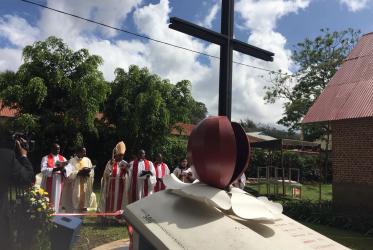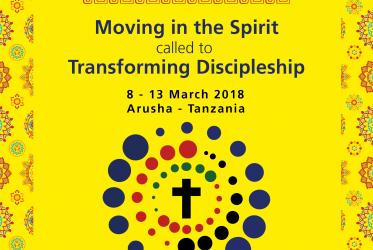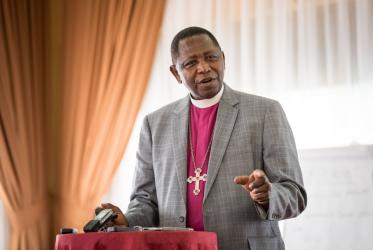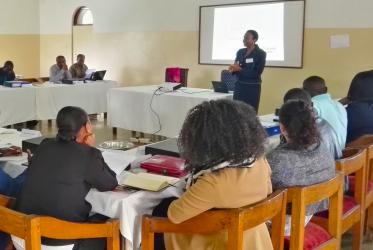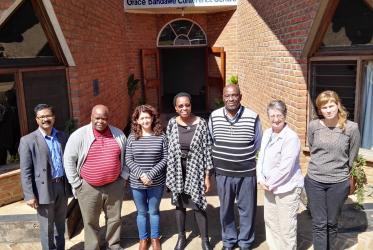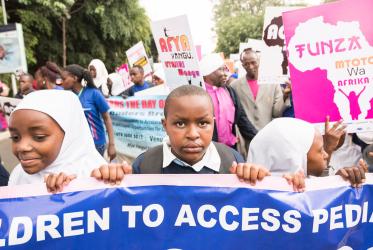Displaying 81 - 100 of 182
08 March 2018
Mission conference theme carries profound meaning
06 March 2018
#WCC70: Churches as “freedom agents”
12 February 2018
Conversation on HIV “must continue,” Faith Networking Zone shows
07 December 2017
WCC joins Tanzanian service observing Reformation anniversary
03 November 2017
“Good healthcare a right, not a privilege,” says WCC-EAA
11 October 2017
“Facing the storm of HIV, we can move together, be agents of change”
06 September 2017
African youth takes stand at first ever WCC Eco-School
03 August 2017

